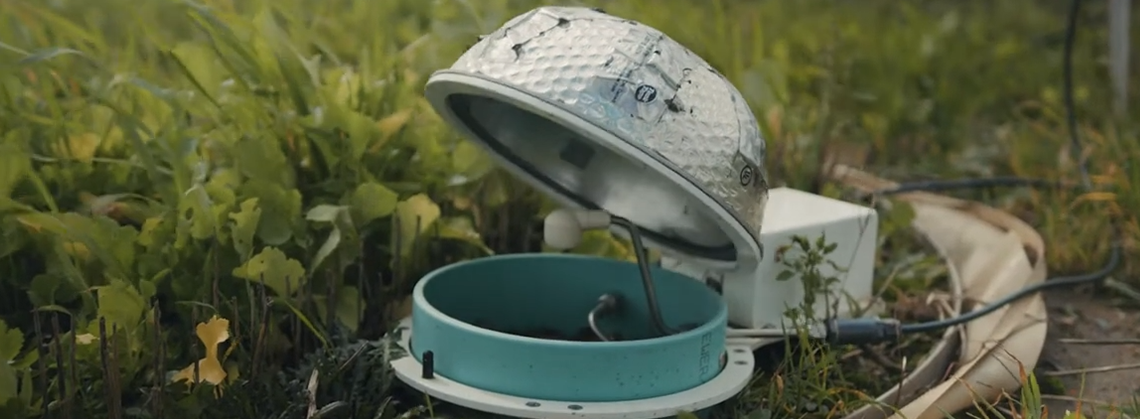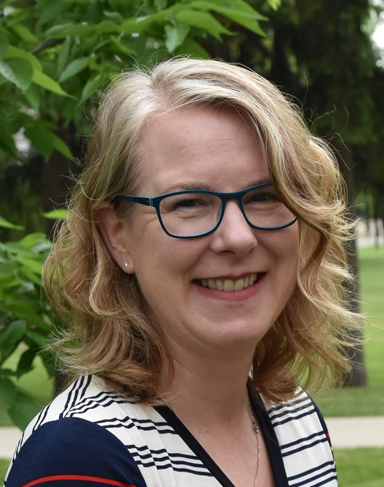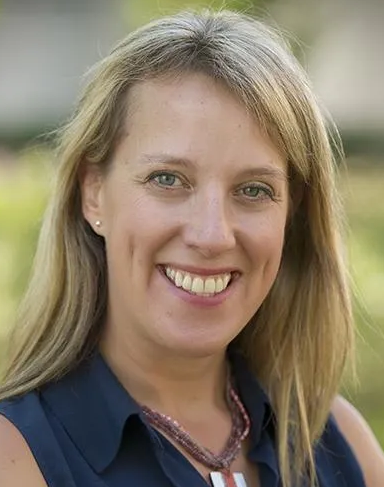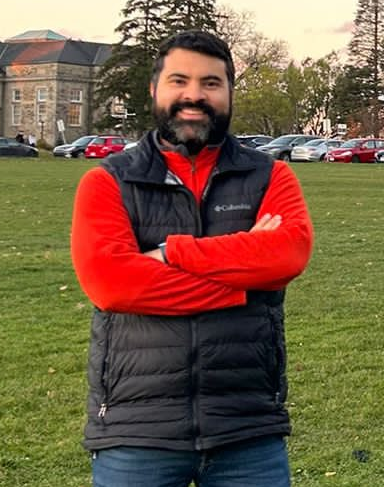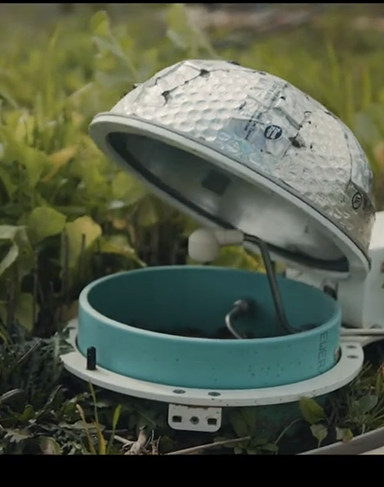
Soils at Guelph's Soil Health Interpretive Centre
The Soil Health Interpretive Centre (SHIC) is a state-of-the-art soil health monitoring station at the Ontario Crops Research Centre* in Elora, Ontario. Led by OAC faculty, the SHIC looks into how to improve soil health and better understand the agronomic benefits and ecosystem services provided by healthy soils. The station uses a vacuum pump to extract soil water through porous ceramic cups and analyzed for nutrients. Research has shown that including cover crops can reduce nitrate (NO3) leaching out of the root zone by 70%. Including cover crops not only keeps valuable nutrients in the soil but also protects drinking water.
